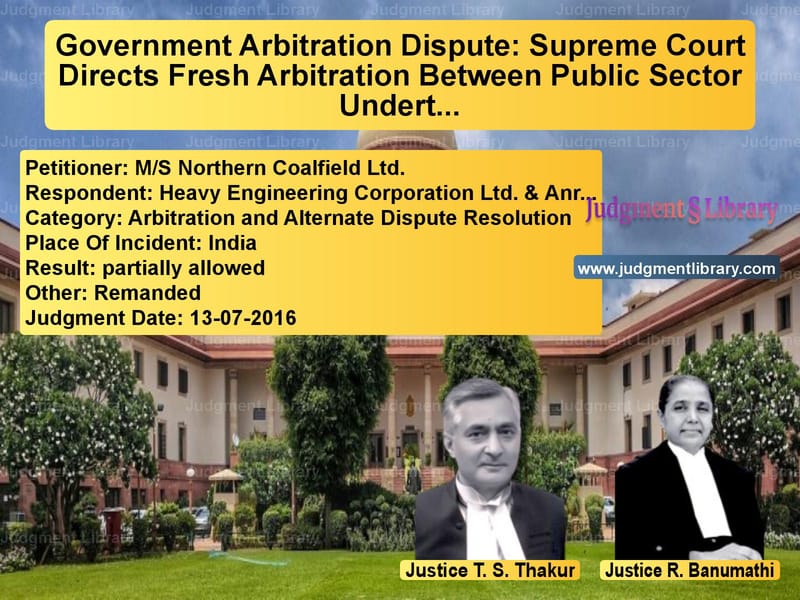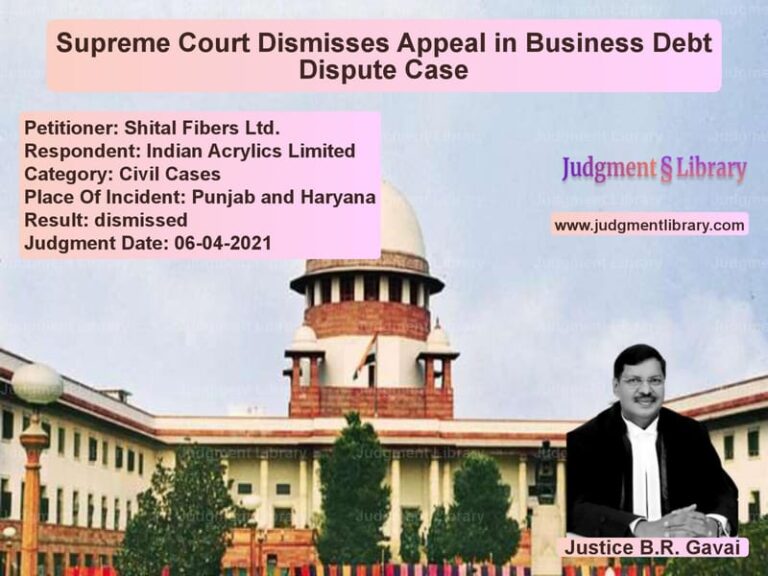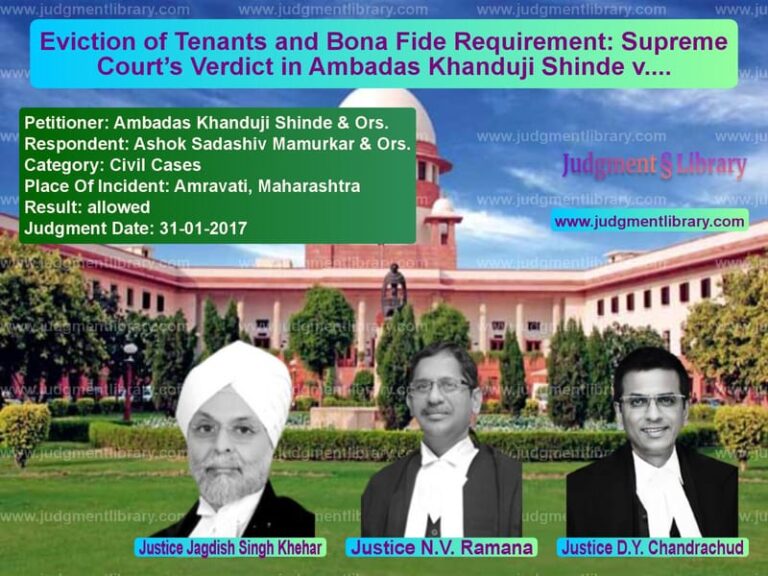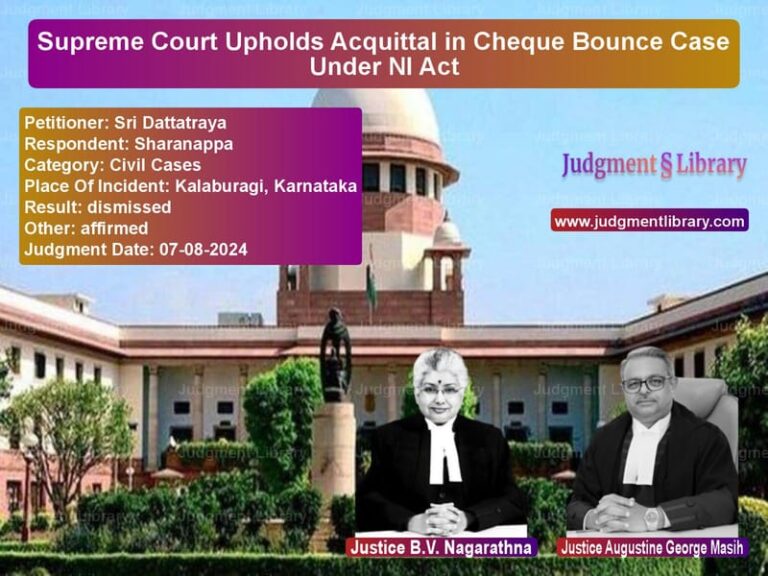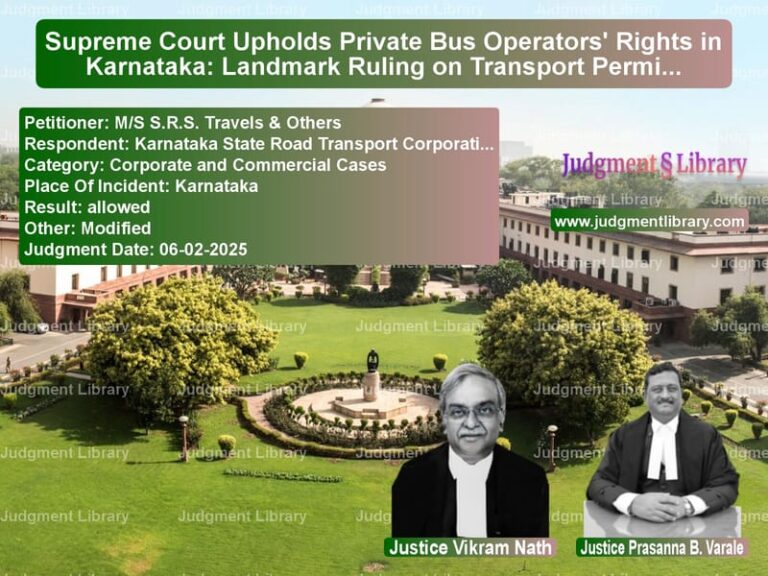Government Arbitration Dispute: Supreme Court Directs Fresh Arbitration Between Public Sector Undertakings
The case of M/S Northern Coalfield Ltd. vs. Heavy Engineering Corporation Ltd. & Anr. highlights the complications arising from disputes between public sector undertakings (PSUs) and the inefficiencies of the existing arbitration mechanism. The Supreme Court had to determine whether the matter should be resolved through civil litigation or arbitration.
The judgment underlines the Supreme Court’s efforts to streamline dispute resolution between government-owned corporations and its reluctance to allow prolonged litigation that wastes public resources. The Court ultimately directed fresh arbitration to settle the dispute effectively.
Background of the Case
The dispute originated from a contract awarded by Northern Coalfield Ltd. (NCL) to Heavy Engineering Corporation Ltd. (HEC) for the construction of a Coal Handling Plant at Bina in May 1984. The work was divided into two contracts:
- A contract for works and services
- A contract for equipment and spares
Both contracts included an arbitration clause. However, disputes arose, leading to arbitration under the government’s Permanent Machinery of Arbitration (PMA). The arbitrator awarded Rs.16.87 crore to HEC, while awarding Rs.56 lakh to NCL. Dissatisfied, both parties challenged the awards before the Law Secretary.
Meanwhile, M/s. Rampur Engineering Company Ltd. filed a suit before the Delhi High Court, arguing that HEC had illegally sublet the contract without prior approval. This further complicated the dispute.
Key Legal Issues Considered
- Was the suit filed by NCL against HEC maintainable?
- Could the arbitration under the PMA be challenged in a civil court?
- Should the dispute be resolved through a fresh arbitration under the Arbitration and Conciliation Act, 1996?
Arguments from Both Sides
Appellant’s (NCL) Arguments
The appellant (NCL) contended:
- “HEC breached the contract by subletting the work to Rampur Engineering without our approval.”
- “The award under the PMA is not binding as it was made under a non-statutory framework.”
- “The High Court was wrong in dismissing our suit on the ground that disputes between PSUs should only be resolved administratively.”
- “The matter should be adjudicated afresh under the Arbitration and Conciliation Act, 1996.”
Respondent’s (HEC) Arguments
HEC and the other respondents argued:
- “The PMA was a valid arbitration process agreed upon in the contract.”
- “The Supreme Court had previously ruled that inter-PSU disputes should be settled administratively without court intervention.”
- “NCL voluntarily participated in the PMA process and cannot now challenge it.”
Supreme Court’s Judgment
The Supreme Court ruled in favor of fresh arbitration, stating:
- “The PMA award is not enforceable under the Arbitration and Conciliation Act, 1996.”
- “Since NCL did not accept the award, the dispute remains unresolved.”
- “A fresh arbitration under the statutory framework is necessary to provide a legally binding resolution.”
- “All claims and counterclaims between NCL and HEC shall be referred to arbitration by a sole arbitrator appointed by this Court.”
Analysis of the Judgment
The Supreme Court made several critical observations:
- The dispute resolution framework for PSUs, including the PMA, was flawed and led to delays.
- The arbitration conducted under the PMA lacked legal enforceability.
- The need for legally binding arbitration under the Arbitration and Conciliation Act, 1996 was emphasized.
- Litigation between PSUs wastes public resources and should be minimized.
Impact of the Judgment
This ruling has significant implications:
- It reinforces the supremacy of the Arbitration and Conciliation Act, 1996 over administrative arbitration mechanisms.
- It highlights the inefficiencies of the PMA and urges the government to reform PSU dispute resolution.
- It discourages prolonged litigation between government entities.
- It sets a precedent for other PSUs to seek statutory arbitration instead of non-binding administrative mechanisms.
Conclusion
The Supreme Court’s ruling in this case ensures that inter-PSU disputes are resolved efficiently and in a legally binding manner. The judgment reinforces the need for structured arbitration rather than relying on non-statutory administrative mechanisms that lack enforceability. This decision serves as a precedent for future cases, ensuring that PSU disputes do not waste valuable judicial resources.
Don’t miss out on the full details! Download the complete judgment in PDF format below and gain valuable insights instantly!
Download Judgment: MS Northern Coalfie vs Heavy Engineering Co Supreme Court of India Judgment Dated 13-07-2016-1741873199049.pdf
Direct Downlaod Judgment: Direct downlaod this Judgment
See all petitions in Arbitration Awards
See all petitions in Dispute Resolution Mechanisms
See all petitions in Institutional Arbitration
See all petitions in Judgment by T.S. Thakur
See all petitions in Judgment by R. Banumathi
See all petitions in partially allowed
See all petitions in Remanded
See all petitions in supreme court of India judgments July 2016
See all petitions in 2016 judgments
See all posts in Arbitration and Alternate Dispute Resolution Category
See all allowed petitions in Arbitration and Alternate Dispute Resolution Category
See all Dismissed petitions in Arbitration and Alternate Dispute Resolution Category
See all partially allowed petitions in Arbitration and Alternate Dispute Resolution Category

